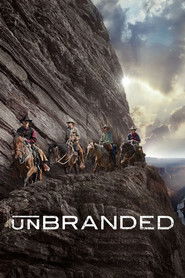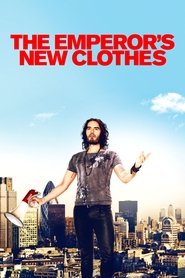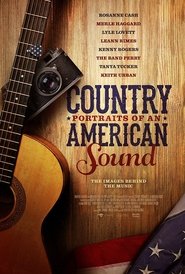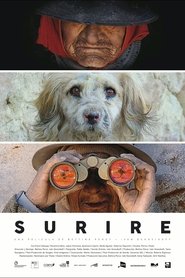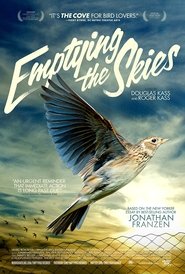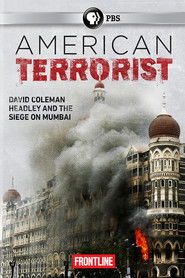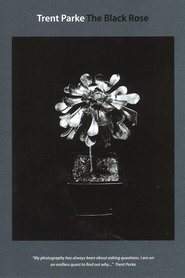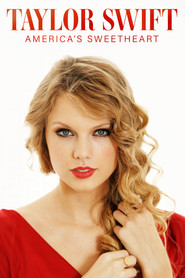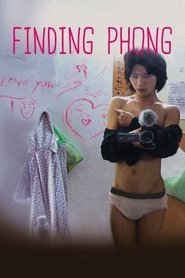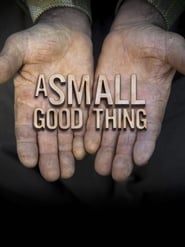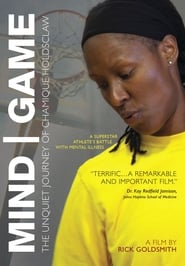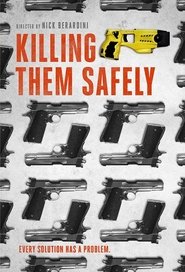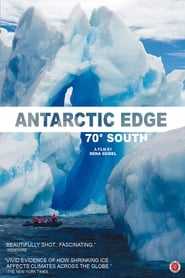New Documentary Movies on Kanopy - Page 161
-
Unbranded
2015
Unbranded
2015
star 6.9Documentary about four friends on a 3,000 mile journey across the American West on horseback. -
Karski & The Lords of Humanity
2015
star 6The film tells the story of a member of the Polish underground who acted as a courier during World War II and whose most prominent mission was to inform the Allied powers of Nazi crimes against the Jews of Europe in an effort to prevent the Holocaust. -
The Emperor's New Clothes
2015
star 6.4An uproarious critique of the world financial crisis. Building on actor, comedian, and provocateur Russell Brand’s emergence as an activist following his 2014 book Revolution, where he railed against “corporate tyranny, ecological irresponsibility, and economic inequality". -
Love Between the Covers
2015
star 6.7A glimpse into the world of the women who create and consume romance novels. -
Country: Portraits of an American Sound
2015
star 7.5'Country: Portraits of an American Sound' is a documentary film that explores the history and culture of country music through the lens of photography, which has portrayed the ideals, lifestyle and personalities of country music artists for over 80 years. The film features imagery and commentary from Grand Ole Opry photographer Les Leverett, the late celebrity photographer Leigh Wiener, documentary photographer Henry Horenstein, iconic music photographers Henry Diltz and Raeanne Rubenstein, and contemporary photographers David McClister and Michael Wilson. Over a dozen country music artists also appear, including Rosanne Cash, Roy Clark, Merle Haggard, Lyle Lovett, Charley Pride, LeAnn Rimes, Kenny Rogers, Tanya Tucker, The Band Perry and Keith Urban. The film weaves iconic images, historical footage and over 25 country music hits into a dynamic look at this uniquely American sound. -
Surire
2015
Surire
2015
star 7.5The Surire Salt Flat is located at an altitude of 4300 m in the Chilean High Plateau and is one of the most remote places in the world, keeping the treasure of untouched nature with all its beauty but also holding an allurement: a huge amount of borax, promising the mining industry profits at unknown levels. Surire, metaphorically tells us in an outstanding visual way the story of our planet - about the very important subjects of the disappearance of traditional indigenous culture, untouched nature, the environment, and the clash of new and old. -
Emptying the Skies
2015
Emptying the Skies
2015
star 6.3If you want to impress your dining companions in Cyprus, it's not caviar that you order, but ambelopoulia: a tiny songbird. But as this gripping doc reveals, the cost to bring such delicacies to the table is enormous. Bestselling novelist Jonathan Franzen takes a break from the world of fiction to guide us through an all too horrifying reality: tens of millions of protected migratory songbirds are illegally killed every year. Franzen, a longtime bird lover, accompanies young staffers of the Committee Against Bird Slaughter on their expeditions. With police enforcement in Southern Europe practically non-existent, they risk their lives to rescue trapped birds, and confront hostile poachers. It's a topic that proves a cultural flashpoint -- the Cypriot landowners cannot understand why a bunch of Italians can tell them what to do on their land. -
American Terrorist: Could the '08 Mumbai Attack Have Been Prevented?
2015
FRONTLINE investigates American-born terrorist David Coleman Headley, who helped plan the deadly 2008 siege on Mumbai. In collaboration with ProPublica, the film — an updated and expanded version of A Perfect Terrorist — reveals how secret electronic surveillance missed catching the Mumbai plotters, and how Headley planned another Charlie Hebdo-like assault against a Danish newspaper. -
American Terrorist: Could the '08 Mumbai Attack Have Been Prevented?
2015
FRONTLINE investigates Pakistani-American terrorist David Coleman Headley (Dawood Sayed Gilani) who helped plan the deadly 2008 siege on Mumbai. In collaboration with ProPublica, the film — an updated and expanded version of A Perfect Terrorist — reveals how secret electronic surveillance missed catching the Mumbai plotters, and how Headley planned another Charlie Hebdo-like assault against a Danish newspaper. -
Trent Parke: The Black Rose
2015
This short documentary showcases Australian photographer Trent Parke’s The Black Rose exhibit while delving into his past, techniques, and philosophy of art. -
The Tentmakers of Cairo
2015
Amid the tumult of the Arab Spring in Cairo, vendors in a small souk observe the political upheaval while seeking to preserve an ancient tradition of fabric making. -
Taylor Swift: America's Sweetheart
2015
star 10The country/pop superstar has taken the music scene by storm, going multi-platinum on her first album, earning four Grammy Awards for her second and being listed in the 2013 Forbes list of top-earning celebs under 30. Born on the 13th December 1989 in Reading, Pennsylvania she showed an early interest in musical instruments. At the age of 11 she made her first trip to Nashville hoping to get a recording deal but it wasn’t until 4 years later that she got signed to a label- Big Machine Records. A best selling singer-songwriter, musician, record breaker and actress in her own right Taylor Swift is a true phenomenon. Through her own words and great archive footage this film takes an incredible look at the life and times of this truly amazing young artist. -
Finding Phong
2015
Finding Phong
2015
star 4.9Phong grew up in a small town in the center of Vietnam - the youngest of six children. From the time she was young, Phong felt like she was a girl with a mismatched boy's body. Not until she moved to Hanoi to attend university at age 20 did Phong discover that she was not the only one in the world with this predicament. Her dream to 'find herself' by physically changing sex becomes a reality several years later. The movie follows Phong's struggle during these years, with excerpts from an intimate video journal, along with encounters with family, friends and doctors - all of whom must come to terms with Phong determination to become a "complete girl". -
Horizons
2015
Horizons
2015
star 6.3By following the career of two dancers of the National Cuban Ballet, Amanda, young ballerina and Viengsay Valdez, star dancer, Horizons revisits the extraordinary destiny of Alicia Alonso, prima ballerina assoluta, with a steel temperament who is now in the twilight of her life. -
A Small Good Thing
2015
A Small Good Thing
2015
star 7We've sought ease, comfort and wealth - but are people happier with more money? What is the science behind a good life? Following several people over a typical year, "A Small Good Thing" looks at the simple sources of human happiness. -
From Fat to Finish Line
2015
star 6.4The journey of 12 people who share the common bond of losing 100 pounds on average and then embarking on one of the biggest challenges of their lives - the 200 mile mega distance Ragnar Relay Race. -
Requiem for the American Dream
2015
star 7.7Through interviews filmed over four years, Noam Chomsky unpacks the principles that have brought us to the crossroads of historically unprecedented inequality – tracing a half-century of policies designed to favor the most wealthy at the expense of the majority – while also looking back on his own life of activism and political participation. He provides penetrating insight into what may well be the lasting legacy of our time – the death of the middle class, and swan song of functioning democracy. -
Mind/Game: The Unquiet Journey of Chamique Holdsclaw
2015
Women's college basketball player Chamique Holdsclaw battles mental illness. -
Killing Them Safely
2015
Killing Them Safely
2015
star 5.9In the early 2000s, two brothers found tremendous success when their company began selling a device that has been called 'the biggest revolution in law enforcement since the radio.' But as their company grew, they made decisions that would have lasting impact on both the public and their increasingly skeptical customer base. -
Antarctic Edge: 70° South
2015
star 7In 2014, scientists declared West Antarctic ice sheet melt unstoppable, threatening the future of our planet. A group of world-class researchers is in a race to understand climate change in the fastest winter-warming place on earth: the West Antarctic Peninsula. Trekking through dangerous and uncharted landscape, these scientists push the limits of their research and come to terms with the sacrifices necessary to understand this rapidly changing world.
 Netflix
Netflix
 Amazon Prime Video
Amazon Prime Video
 Apple iTunes
Apple iTunes
 Apple TV Plus
Apple TV Plus
 Disney Plus
Disney Plus
 Google Play Movies
Google Play Movies
 Paramount Plus
Paramount Plus
 Hulu
Hulu
 HBO Max
HBO Max
 YouTube
YouTube
 fuboTV
fuboTV
 Peacock
Peacock
 Peacock Premium
Peacock Premium
 Amazon Video
Amazon Video
 The Roku Channel
The Roku Channel
 AMC+
AMC+
 Kocowa
Kocowa
 Hoopla
Hoopla
 The CW
The CW
 Vudu
Vudu
 Starz
Starz
 Showtime
Showtime
 PBS
PBS
 Pantaflix
Pantaflix
 FXNow
FXNow
 Tubi TV
Tubi TV
 Kanopy
Kanopy
 Comedy Central
Comedy Central
 Crunchyroll
Crunchyroll
 Microsoft Store
Microsoft Store
 Redbox
Redbox
 Sun Nxt
Sun Nxt
 ABC
ABC
 DIRECTV
DIRECTV
 Crackle
Crackle
 Fandor
Fandor
 Plex
Plex
